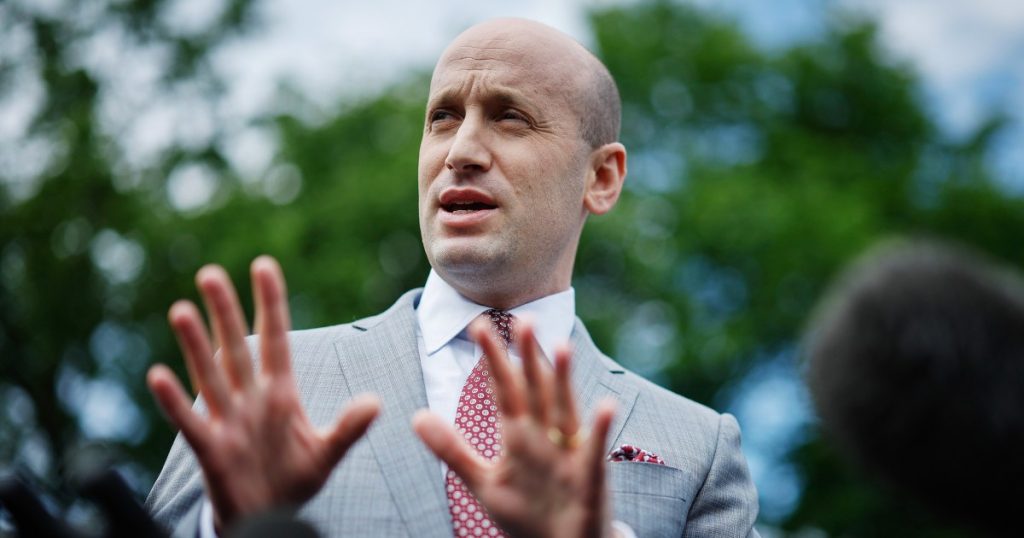Top Trump adviser Stephen Miller told reporters Friday that the administration is “looking at” ways to end due process protections for unauthorized immigrants who are in the country.
“The Constitution is clear, and that, of course, is the supreme law of the land, that the privilege of the writ of habeas corpus can be suspended at a time of invasion. So I would say that’s an action we’re actively looking at,” Miller said in the White House driveway.
“A lot of it depends on whether the courts do the right thing or not,” Miller said.
The White House did not immediately respond to a request for clarification on whether he was referring to a specific group of people who’ve entered the country illegally, or all the people who have. It also did not comment on what he meant by the courts doing “the right thing.”
In his remarks, Miller maintained that the courts don’t have jurisdiction in immigration cases. “The courts aren’t just at war with the executive branch; the courts are at war, these radical rogue judges, with the legislative branch as well too. So all of that will inform the choices the president ultimately makes,” he said.
President Donald Trump has repeatedly voiced frustration about constitutional due process protections slowing down his efforts at mass deportations.
“I was elected to get them the hell out of here, and the courts are holding me from doing it,” he said in an interview with Kristen Welker that aired Sunday on NBC News’ “Meet the Press.”
Welker pointed out the Fifth Amendment of the U.S. Constitution says “no person” shall be “deprived of life, liberty, or property, without due process of law” and that the Supreme Court has long recognized that noncitizens have certain basic rights, but Trump complained that those protections take too much time.
“I don’t know. It seems — it might say that, but if you’re talking about that, then we’d have to have a million or 2 million or 3 million trials,” he said, adding that some of the people the administration wants to deport are “murderers” and “drug dealers.”
Welker then asked if he needs to uphold the Constitution.
“I don’t know,” Trump replied. “I have to respond by saying, again, I have brilliant lawyers that work for me, and they are going to obviously follow what the Supreme Court said.”
A clause in the Constitution says due process protections can be suspended during an invasion: “The Privilege of the Writ of Habeas Corpus shall not be suspended, unless when in Cases of Rebellion or Invasion the public Safety may require it.”
Trump claimed the U.S. was being invaded back in March, when he invoked the rarely used Alien Enemies Act to send alleged members of the Venezuelan gang Tren de Aragua to a prison in El Salvador.
The proclamation said the gang “is perpetrating, attempting, and threatening an invasion or predatory incursion against the territory of the United States.” Three federal judges in different states have found the gang’s criminal activities aren’t tantamount to an invasion.
The Supreme Court has not weighed in on the invasion issue, but held in a ruling last month that the people the government wanted to deport are entitled to due process. “AEA detainees must receive notice after the date of this order that they are subject to removal under the Act. The notice must be afforded within a reasonable time and in such a manner as will allow them to actually seek habeas relief in the proper venue before such removal occurs,” the order said.
In an essay for the National Constitution Center, attorney Neal Katyal and then judge – and now Supreme Court justice – Amy Coney Barrett wrote that, “A suspension is temporary, but the power it confers is extraordinary. When a suspension is in effect, the president, typically acting through subordinates, can imprison people indefinitely without any judicial check.”
The writ of habeas corpus, according to that essay, has been suspended four times before, including throughout the country during the Civil War. The last time was in Hawaii after the attack on Pearl Harbor.


